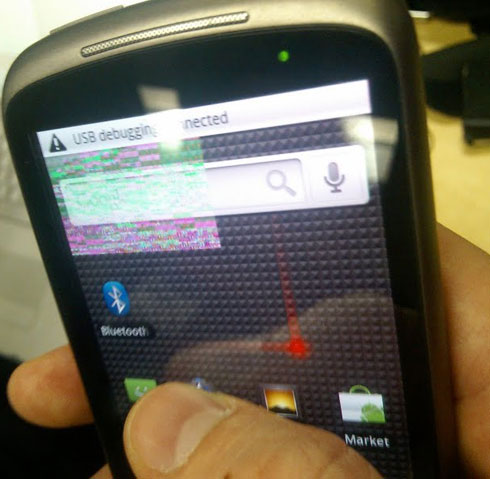
When the unlocked, Google-branded Nexus One handset hits the market next year, Google unleashes a two-pronged attack on the Apple iPhone. On one hand, normal people will continue to buy subsidized but locked Android handsets provided by the cellular service carriers. That’s the space the iPhone plays in right now.
On the other hand, hardware geeks will buy expensive but unlocked Google phones provided by the Mountain View powerhouse itself. Thanks to Steve Jobs’ five-year dark bargain with AT&T, that’s a space in which the iPhone simply will not compete.
Thus, Google’s mobile platform allows third parties to maintain walled gardens (carrier-branded handsets with contracts) while maintaining a completely open playground (unlocked handsets). They take on two imporant market segments simultaneously: the common consumers who flock to the walled gardens, and the early adopters in the playground who influence the common consumers. Time will tell if such outflanking will make a dent in the iPhone’s market share.
In the meantime, you have to wonder what the Nexus One bodes for the direction of Google’s upcoming browser-based operating system, the Google Chrome OS, slated for release almost a year after the Nexus One. The potential parallels are certainly intriguing.
Chrome OS will come bundled as an OEM release with very specifically-designed SSD netbooks from various computer manufacturers. Those machines would directly parallel the carrier-locked Android handsets provided by various cellphone manufacturers. If the parallelism holds, could Google release its own hardware for the Chrome OS, the same way it’s now releasing its own hardware for the Android mobile OS? As demonstrated by the Psystar case, Apple is willing to do the latter (provide its own hardware), but not the former (allow branding from third-party manufacturers). The Mountain View geniuses would outflank the Cupertino tyrants once more. Could Google’s two-pronged mobile OS strategy serve as a miniature version (no pun intended) of its future two-pronged desktop OS strategy?
Either way, the current geek hullabaloo over the Nexus One undeniably proves one thing: the existence of a strong demand for Google-branded consumer hardware among the influential blogging-and-twittering digerati. Google can leverage that demand in future consumer hardware projects. We can still expect the bulk of Google Android’s market penetration to come from the carrier-locked handsets, but the geeks will continue to generate buzz about the Google-branded handsets. That’s why T-Mobile and Verizon, who both carry Android handsets, aren’t freaking out right now: the buzz around the expensive Nexus One will help drum up sales for the subsidized G1 and Droid.
Though the actual manufacturing of the Nexus One has been contracted to HTC, there is absolutely no HTC branding on the Nexus One. It’s a Google-branded phone, through and through. High-end hardware manufacturing as word-of-mouth marketing is not a new concept. Though not traditionally a hardware provider, perhaps Google will become the next industry titan to apply that concept — for both Android and Chrome OS.
(The photo above is courtesy of Engadget.)
Originally posted on December 14, 2009 @ 4:50 am
 One of the main appeals of cloud computing services is the quantized flexibility of their billing schemes — you pay only for the computing resources you need, for the amount of time you need them. That means billing can usually be adjusted on two dimensions: resources required and duration of use.
One of the main appeals of cloud computing services is the quantized flexibility of their billing schemes — you pay only for the computing resources you need, for the amount of time you need them. That means billing can usually be adjusted on two dimensions: resources required and duration of use. Remember when
Remember when  It’s days like these that make me really, really happy that so many Google services are so indirectly monetized.
It’s days like these that make me really, really happy that so many Google services are so indirectly monetized. 